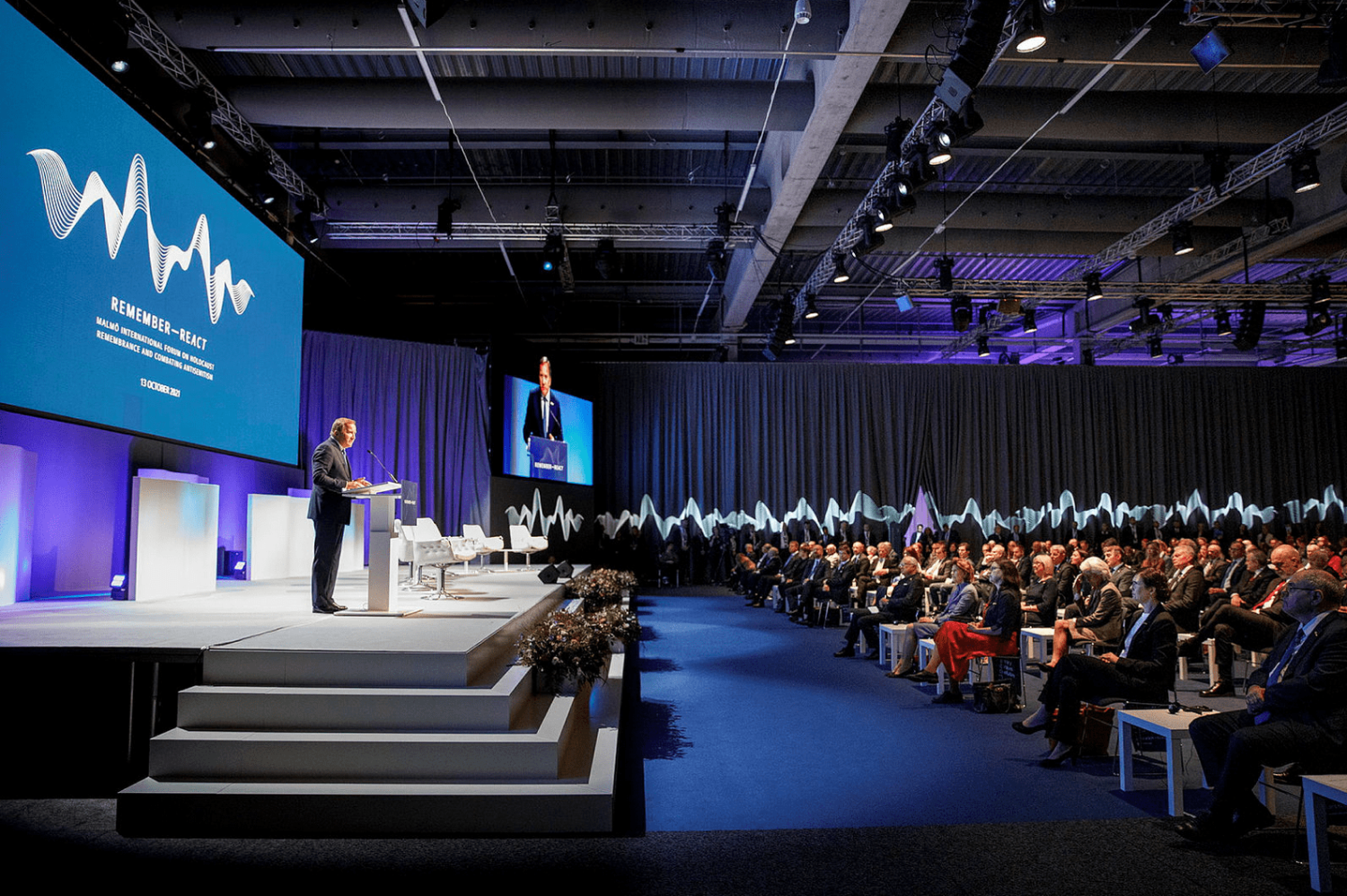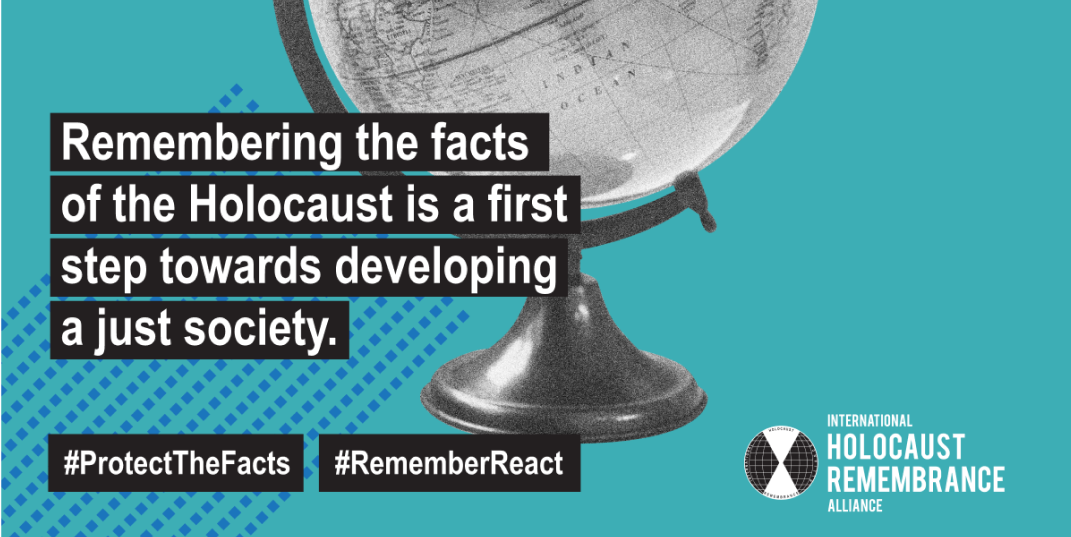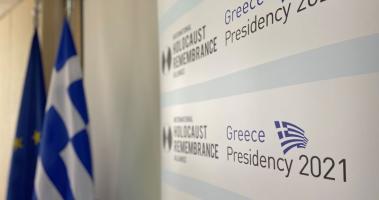
Wave of activity launched at Malmö Forum is strengthening democratic institutions
This article is part of our series looking back at one year of implementation of the pledges made at the Malmö International Forum, Remember ReAct.
By: Ambassador Ann Bernes, Chair of the International Holocaust Remembrance Alliance (IHRA), and Dr. Kathrin Meyer, IHRA Secretary General
One year ago, when world leaders met in Sweden for the Malmö International Forum on Holocaust Remembrance and Combating Antisemitism – Remember-ReAct, there was much cause for optimism. We were beginning to see the end of the pandemic and there was a general sense that we could, and should, work together to address increasing antisemitism, antigypsyism and Holocaust distortion. Indeed, the action-oriented approach taken by the Forum itself was testament to this.
The Malmö approach meant that all participating leaders were asked to go from words to deeds and make concrete pledges in the areas of Holocaust remembrance and education, and combating antisemitism, antigypsyism and racism in all spheres of life, including on social media.
Over 150 pledges were made by 60 governments, international organizations, and tech companies in even more areas than foreseen – an unprecedented push of activity. One of Sweden’s pledges was to follow up on these commitments during the Swedish Presidency of the International Holocaust Remembrance Alliance (IHRA), whose mandate coincides with many of the pledge areas.
In October 2021, however, few expected Russia’s unprovoked and unjustifiable aggression against Ukraine. Or that inflation, energy prizes and cost-of-living would soar.
Looking back now, it is clear that these crises have not halted the implementation of the commitments made at Malmö. On the contrary, one year on, our reporting shows that the Malmö Forum provided the necessary impetus for multiple policy decisions and strategic initiatives to be set in motion.
The pledges represent a wide range of activities, including research projects, funding initiatives, new museums, new government offices, training programs, and entire strategies to counter antisemitism, antigypsyism, and racism. Whether the pledges have launched brand new initiatives or strengthened existing programs and institutions, all of them fill important gaps in our approach to strengthening our pluralistic democracies and to countering incitement to hatred and violence sparked by antisemitism, antigypsyism, or racism.
One year on, the Malmö Forum continues to guide policy agendas in the field. While some pledges – like Australia’s first-ever nation-wide survey on Holocaust knowledge and awareness – have been completed, others are still in progress. This includes pledges like the opening of Romania’s National Museum of Jewish History and the Holocaust, the permanent exhibition for which is currently being designed. Likewise, discussions on the United Kingdom’s pledged Online Safety Bill, which aims to tackle harmful content online, are ongoing, as are the IHRA’s efforts to develop recommendations for teaching and learning about the genocide of the Roma.
While many pledges reflect national projects, some were steeped in international cooperation from the outset. An Austrian pledge that resulted in recommendations equipping teachers and school administrators to better address antisemitism both within and outside their classrooms was based on research conducted in Austria, Bavaria, and Switzerland. Other countries have taken note, using the insights gleaned from the Austrian project to inform their own teacher training programs.
The Malmö Forum, and the Swedish IHRA Presidency’s continued follow-up of the pledges, has made it easier for good practices to be identified and implemented elsewhere. When developing policies of their own, countries no longer need to start from scratch. The Malmö Forum effectively has lowered the barrier to entry. Each pledge represents a starting point for countless other new initiatives.
The pandemic reminded us that people quickly turn to hate when faced with a seemingly insurmountable crisis. Today, we are facing many of these. As the cohesion of our pluralistic democracies is tested on many fronts, we must respond with policies that strengthen civil society and counter antisemitism, antigypsyism and racism – we must continue to implement the Malmö Forum pledges – a bulwark against the most damaging effects of today’s multiple crises.
Sign up to our newsletter to
receive the latest updates
By signing up to the IHRA newsletter, you agree to our Privacy Policy




